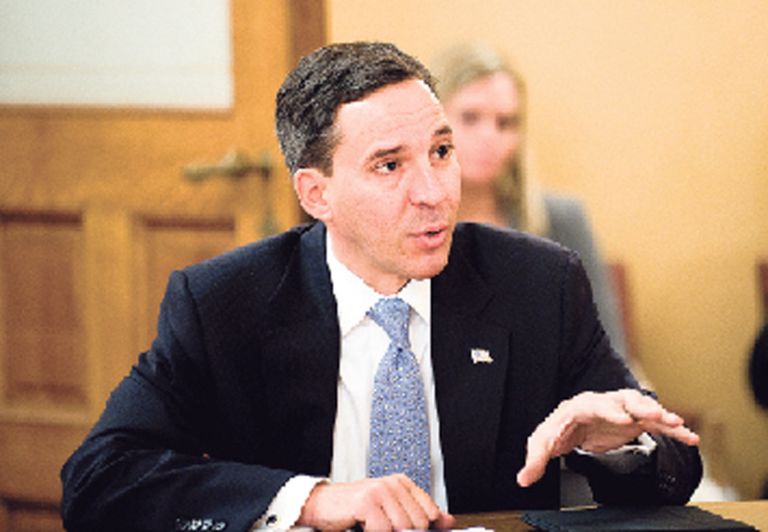
We’re one month in and 2016 has already dealt us some huge losses.
If you’re like me, you felt your youth vanish into thin air as musicians Natalie Cole, Glen Frey, and David Bowie all passed away within weeks of each other.
We also lost actors Dan Haggerty, Alan Rickman, and Abe Vigoda. It’s groundless of course, but it feels like this time of year always deals us the harshest blows.
Along those lines, I wanted to revisit a subject that hits us hard right here on Long Island.
Let me begin by saying that as your state senator I’m blessed to be part of many joyful milestones: christenings, graduations, marriages, even the openings of new business ventures. I’m grateful to all of you.
But alas, I’m also intimately acquainted with more painful moments in the lives of Long Island’s families.
This week a vibrant, well-loved, young man of just 23 years died of a heroin overdose.
He was described as an absolute delight to be with; a friendly, kind, outgoing, and gentle son, brother and friend. He was with his family in their own home when he stepped away for a few moments and the unthinkable happened.
The details don’t matter. He couldn’t be saved. Now his heartbroken family is left picking up the pieces, trying to make sense of the hole in their lives.
As I shared this awful news with a good friend, he told me of his co-worker who had lost a son to a heroin overdose just two weeks before. And later that evening as I picked up my daughter from a friend’s house, another parent spoke of her doctor who lost his child to heroin as well. No matter where you turn, you’ll find someone with the same story.
The epidemic is so widespread that the Long Island Expressway has earned the unfortunate moniker of “the heroin highway.”
You heard that right.
As I’ve written before, Nassau and Suffolk counties are epicenters for this suburban scourge. It crosses all age groups and socio-economic lines and offers bags of potent “smack” for about $5, less than a pack of cigarettes.
Please understand, this isn’t a “city” problem, but one that threatens our loved ones right here in our own hometowns.
How bad is it? In 2013 alone, heroin killed a record-number 144 Long Islanders.
That same year Suffolk County made 1,386 heroin-related arrests while Nassau County police recorded 500.
In 2014, The Long Island Council on Alcoholism and Drug Dependence saw their numbers jump from 300 people a month to 1000 with kids as young as 12 seeking help!
We’ve acted to address this crisis. I’ve authored laws expanding drug education for children and giving law enforcement greater power to investigate opioid prescription fraud. I’ve also sponsored legislation to make it easier for parents to get their children into treatment if needed and supported tougher penalties for the dealers who are poisoning our communities with drugs.
They’re all positive steps, but more needs to be done.
Just this week I asked the commissioner of the State’s Office of Alcoholism and Substance Abuse Services whether a comprehensive, coordinated approach among all levels of government is being developed to tackle the heroin epidemic.
After all, when other major public health emergencies occur, we see a synchronized effort from state, county, and local governments, everyone pulling in the same direction.
At the jam-packed memorial service for the young man from the beginning of this story, I heard the rabbi made some people uncomfortable.
Apparently, he reminded everyone there that we ourselves are responsible for stopping this epidemic, that it’s not enough to shed tears and then move on.
He said we all know someone who’s abusing drugs or who is dealing and that we had to shine a light on it or it would fester and grow in the dark.
Then he looked at the hundred or so young people lined across the back of the room crying and said, “I’m talking to you guys, too! Don’t let this happen again!” He called everyone out.
Some people don’t like that but it gives others, like me, hope.
My friends, neighbors, fellow parents — fight back. It really is a war, one that is happening in every one of our communities that can claim our children.
Nobody knows them better than you.
Keep having “the drug talk.” Keep asking questions. Keep paying attention to where they’re going and who they’re with. Don’t let them ignore you. And for heaven’s sake, speak out if you see something, even if it’s not your own kid. This is a virus. We have to inoculate everyone in order to slow its spread.
Keep shining the light on it. Never give up.






